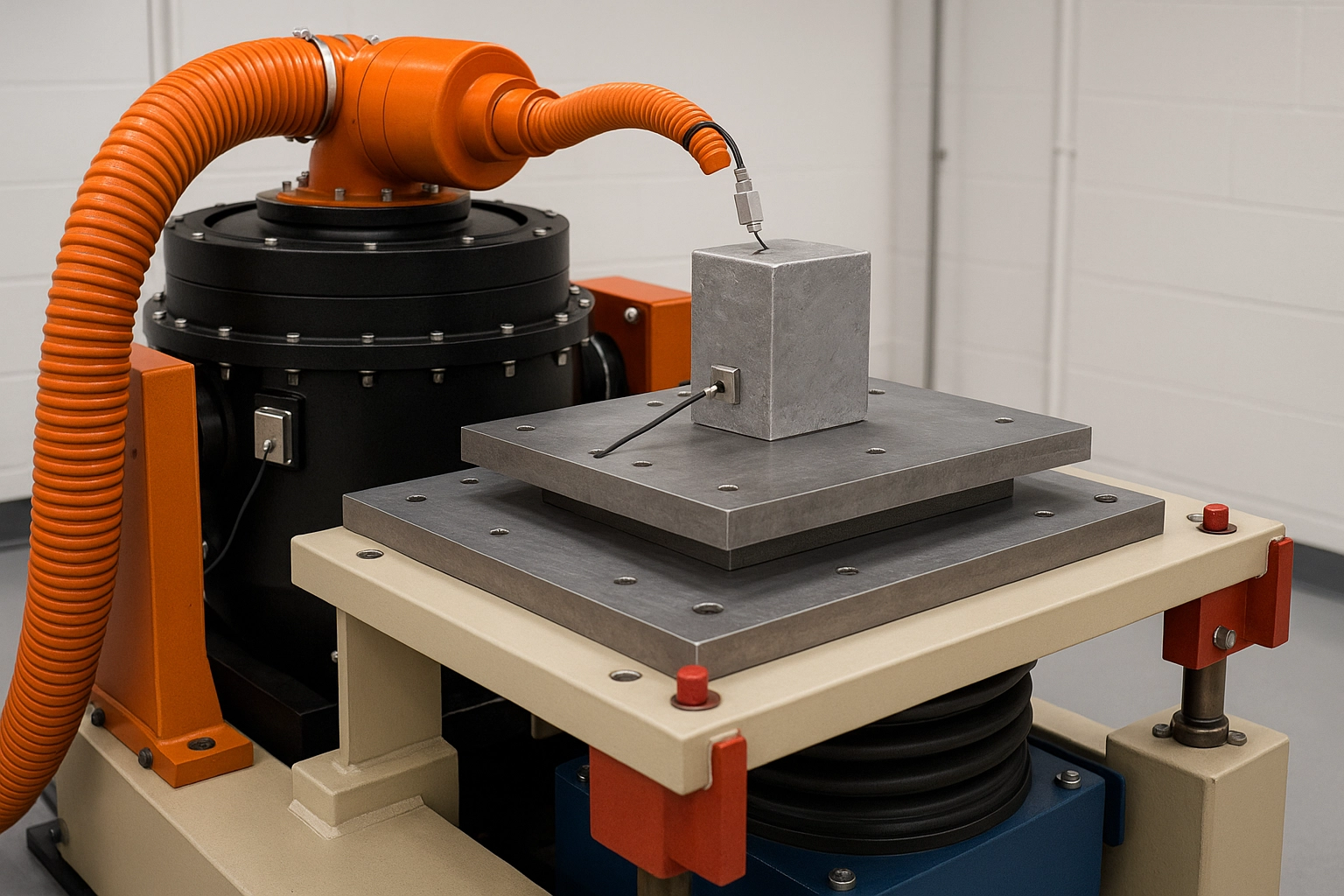JIS D0203 Vibration Test for Vehicle Electrical Equipment
The JIS D0203 vibration test is a critical component of quality assurance and product development processes in the automotive industry. This test evaluates how vehicle electrical equipment withstands mechanical stress during vehicular operation, which can be subjected to various environmental conditions. Compliance with this standard ensures that components are robust enough to perform reliably under challenging circumstances.
The JIS D0203 specifies a method for determining the performance of automotive electrical and electronic parts after exposure to vibration in accordance with ISO 7658, which is widely recognized globally. The test aims at simulating real-world conditions where vehicles travel over uneven surfaces or encounter other forms of mechanical shock that can cause damage to sensitive components.
The primary objective of this testing procedure involves exposing the specimen under controlled environmental and vibration conditions specified by JIS D0203, monitoring its performance throughout the duration of the test. After completion, engineers assess whether any failures occurred due to excessive vibrations or shocks. If no failure is observed within the prescribed limits set forth in the standard, then it implies that the component has passed this crucial step towards meeting stringent quality and safety requirements.
For automotive manufacturers aiming to meet international standards while ensuring their products are fit for purpose across diverse markets worldwide, compliance with JIS D0203 is essential. By conducting thorough tests like these early in the design phase or during production validation stages, companies can identify potential issues before mass production begins, thereby reducing costly rework later on.
It's important to note that besides just passing the test itself, manufacturers must also ensure proper specimen preparation according to JIS D0203 guidelines. This includes cleaning the component thoroughly and securing it correctly onto the vibration test rig so as not to introduce additional stresses during testing beyond those already present in the actual usage environment.
During execution of the test, specialized instrumentation plays a vital role in measuring the frequency response function (FRF), acceleration levels, displacement, and other parameters relevant to assessing the durability of electrical equipment under simulated vibration conditions. Engineers collect data throughout the entire testing process using advanced software tools that allow them to analyze trends over time and pinpoint any areas requiring further investigation.
The results from this test serve multiple purposes beyond mere compliance with regulations. They provide valuable insights into how well different components perform when exposed to various types of vibrations, helping R&D teams refine designs based on empirical evidence rather than guesswork alone. Additionally, these tests help ensure that suppliers deliver consistent quality products meeting the highest industry standards.
Compliance with JIS D0203 is especially important for manufacturers who want to penetrate specific markets known for stringent regulatory requirements or those looking to gain market share among competitors adhering strictly to recognized international standards. It also demonstrates commitment to maintaining high levels of product quality and reliability, which are crucial factors influencing customer satisfaction and brand reputation.
Understanding the context behind JIS D0203 helps explain why it's essential for automotive companies to incorporate such rigorous testing into their development processes early on. By doing so, they not only meet regulatory expectations but also enhance product performance and build trust with consumers.
Applied Standards
The JIS D0203 vibration test aligns closely with other internationally recognized standards such as ISO 7658, which provides guidance on the procedure for evaluating the effects of mechanical shock and vibration on automotive components. Both these standards emphasize the importance of accurately simulating real-world conditions during testing to ensure reliable performance.
- ISO 7658: Specifies the method for determining the performance of automotive electrical and electronic parts after exposure to mechanical shock and vibration.
- JIS D0203: Provides detailed specifications for conducting tests on vehicle electrical equipment subjected to specified levels of vibrations.
These standards work together to provide comprehensive coverage of the key aspects involved in ensuring robustness against environmental stresses. They help manufacturers develop products that can withstand harsh conditions without compromising functionality or safety.
Eurolab Advantages
At Eurolab, we pride ourselves on offering comprehensive services tailored specifically to meet the needs of our clients in the automotive industry. Our expertise lies not only in providing accurate and reliable test results but also in helping companies navigate complex regulatory landscapes associated with international standards like JIS D0203.
- Comprehensive Testing Capabilities: We have state-of-the-art facilities equipped to conduct all necessary tests required by JIS D0203, including those involving mechanical shock and vibration simulation.
- Experienced Technical Staff: Our team consists of highly qualified professionals with extensive experience in automotive testing. They stay updated on the latest developments within the sector, ensuring that our clients receive services aligned with current best practices.
- Customized Solutions: Recognizing that every company has unique requirements, we offer bespoke solutions designed specifically to address individual needs. Whether it's assistance in selecting appropriate test parameters or guidance on interpreting results, Eurolab is committed to supporting our clients throughout the entire process.
In addition, our commitment extends beyond just meeting compliance goals; we strive to exceed expectations by delivering exceptional service and value-added support that contributes directly to long-term success. By leveraging our deep understanding of both local regulations and international standards, Eurolab helps ensure that automotive components are not only compliant but also optimized for performance.
International Acceptance and Recognition
- JIS D0203 has gained widespread acceptance across various countries due to its rigorous methodology and alignment with international standards like ISO 7658.
- Many major automotive manufacturers around the globe use this test as part of their quality assurance protocols, ensuring consistency in product reliability worldwide.
- The results obtained from JIS D0203 are often accepted by regulatory bodies and customers alike, fostering confidence in the robustness of tested components.





